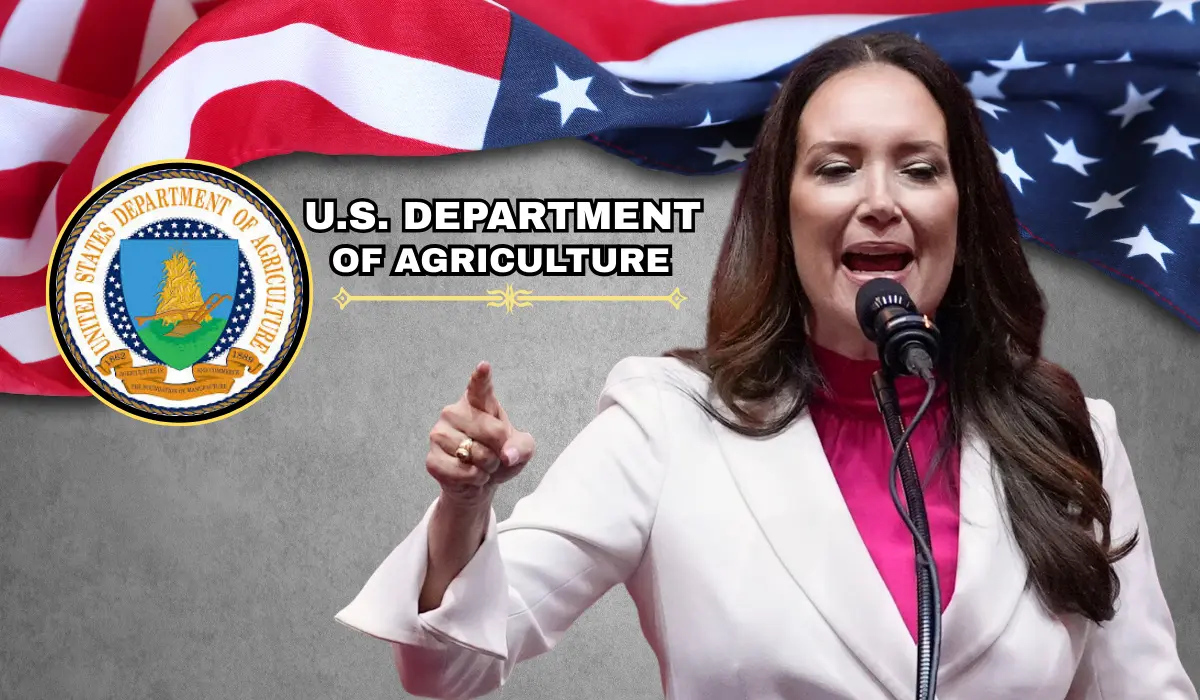U.S. Agriculture Secretary Brooke Rollins on Monday defended the Trump administration’s decision to slash higher education grants for Tennessee institutions while unveiling new federal spending aimed at strengthening the state’s farming sector.
Speaking at a Future Farmers of America breakfast during the State Fair in Lebanon, Rollins outlined a policy shift that redirects federal resources away from university research programs and toward direct aid for farmers and rural communities.
Rollins said the administration’s focus is on ensuring “every dollar is used to make farmers more productive and profitable,” even if it means reducing funding for programs long tied to agricultural research. “Those cuts were being made in programs that did not align with the president’s vision of putting farmers first,” she said.
Higher Education Grants Eliminated
The federal government earlier this year removed more than $31 million in funding from the University of Tennessee Institute of Agriculture, which provides research and extension services to farmers across all 95 counties in the state. The cuts are part of broader reductions in higher education support tied to agriculture.
Deputy Agriculture Secretary Stephen Vaden, a Tennessee native, described the changes as a “repurposing” rather than a withdrawal. He said research dollars were evaluated through the lens of immediate economic impact. “If a grant helps a farmer in the field make more money, it stays,” Vaden explained. Programs focused on clean energy initiatives or those involving what he called “racial criteria” did not meet that standard and were eliminated.
Solar Panel Subsidies in the Crosshairs
Rollins also criticized the Biden administration’s Inflation Reduction Act, particularly its incentives for solar energy development on farmland. She argued that solar subsidies are shrinking agricultural acreage in Tennessee and beyond, calling them “market distorting.”
The remarks come despite a recent study by the Tennessee Advisory Commission on Intergovernmental Relations, which concluded that solar facilities are unlikely to drive widespread farmland loss for decades. The commission also noted that land used for solar can be restored to agriculture once panels are decommissioned.
Rollins dismissed that assessment, saying the administration is determined to protect farmland from energy development projects she believes are harmful to agricultural productivity.
Redirecting Funds Toward Rural Projects
Alongside the higher education cuts, the Department of Agriculture announced new investments totaling nearly $89 million for 13 rural development initiatives across 28 Tennessee counties. Rollins said the projects are designed to strengthen infrastructure, expand partnerships, and improve access to rural education.
In addition, she highlighted nearly $100 million in assistance already distributed this year to more than 10,000 Tennessee farmers under the Emergency Commodity Assistance Program. The secretary said the administration’s goal is to deliver practical support directly into the hands of producers rather than routing funds through academic institutions.
Farmers Weigh Tariffs and Trade Deals
Some Tennessee farmers remain concerned about the broader economic environment, particularly the impact of tariffs imposed under President Donald Trump. Many say those tariffs have raised costs, which are being passed along to consumers in the form of higher prices.
Rollins acknowledged the challenge but pointed to new international trade agreements the administration has signed. She said eight new deals are expected to help expand market opportunities for U.S. agricultural products and offset tariff-related price pressures.
A Shift in Federal Priorities
The policy direction unveiled in Lebanon underscores a significant shift in how the federal government approaches agricultural support in Tennessee. By scaling back university research funding while increasing direct aid and rural development spending, the administration is betting that farmers will benefit more from immediate resources than from long-term academic programs.
Critics argue that cutting grants to institutions such as the University of Tennessee could undermine agricultural research and education that farmers depend on for innovation and sustainability. Supporters, however, say the approach reflects a pragmatic focus on bottom-line profitability for producers.
As Rollins summed up, the administration’s priority is clear: “We are putting farmers first.”




